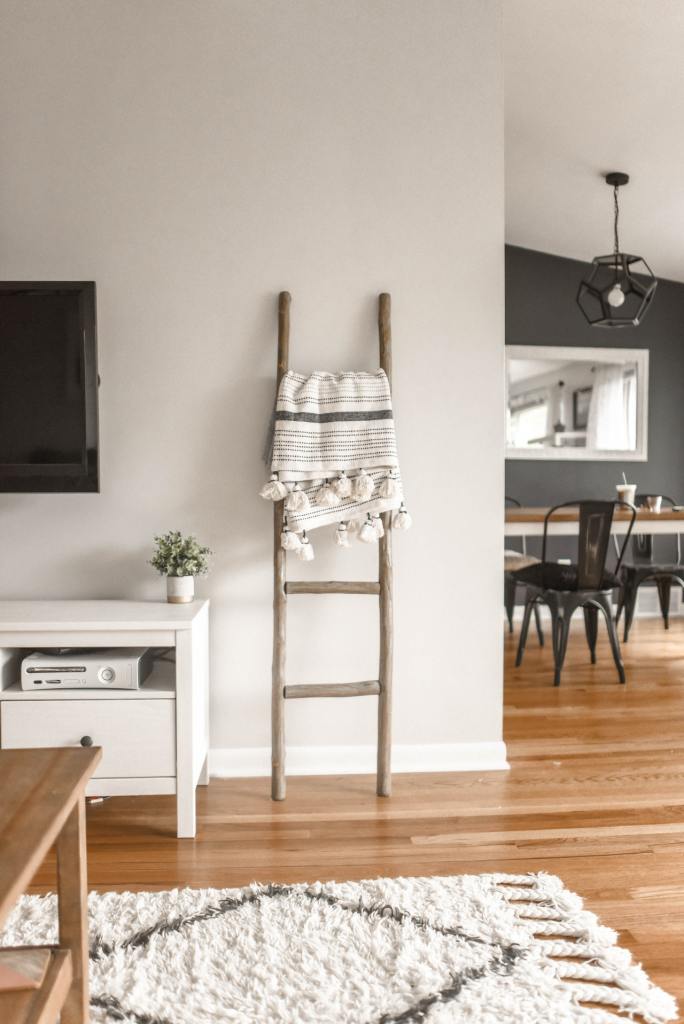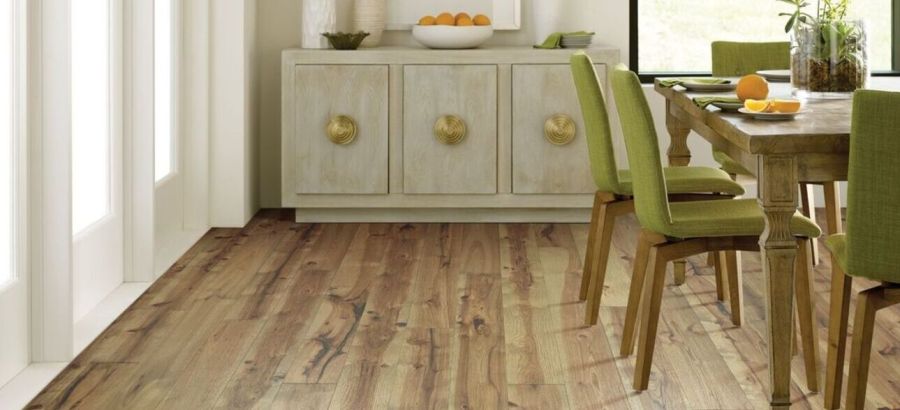Thoughtfully chosen flooring amplifies your home’s value and beauty
2021 has arrived. With so many of us home every day due to coronavirus COVID-19 restrictions, the home improvement industry has exploded.
Money saved by being at home, and cancelled vacations, are likely contributors to Canada’s 2021 renovation boom.
Another factor contributing to the renovation boom is the housing bubble, which has prompted many Canadians to renovate their homes rather than buying new ones.
FAST FACT: Did you know hardwood floors can add 2% or more to the value of your home, with a 70%(+) return on investment? To fully impact the value of your property, when you add new hardwood flooring it is important that you equally nurture the rest of your home with updates.
Are you ready to get started?
Before you begin your home flooring project, ask yourself this:
Is everything else in your house as you want it to be?
If you answered, “no,” you might consider taking care of some other projects first. As example, have you always planned on opening the wall between your kitchen and living room? Are you planning to replace windows or convert a bedroom into a home office?
Don’t back yourself into a corner, or a place of regret, by starting any project you may later need to re-think or redo because of poor long-term planning.
A good rule of thumb is to work from the top down. Fix your roof and fix your ceilings before you fix your floor. Otherwise, you will be walking on eggshells trying to tackle projects that may cause damage to your beautiful new flooring.
Something else to think about is this:
What makes you happy?
If you like waking up and walking barefoot across your carpeted bedroom floor―no matter how on-trend hardwood is these days―changing out the carpet for hardwood probably is not a good idea.
Pets or children?
If you are leaning toward hardwood, for homeowners with pets and/or children that want sustainable hardwood flooring, hickory is a wise choice―as inviting as it is modern and as beautiful as it is durable. Oak is cheaper than hickory, and another good choice in terms of hardness and durability.
The Janka Hardness Score is a reliable way of predicating how durable any given hardwood will be. Keep in mind, sourcing location can impact durability. Be sure you know the specific area the hardwood is being sourced from to get its true hardness score.
Engineered or solid hardwood?
Engineered hardwood is considered very strong and stable, but it is not rated on the Janka Hardness Score. There are two main benefits to engineered hardwood:
- Engineered hardwood is not prone to seasonal shrinking and stretching from humidity.
- Unlike solid hardwoods, engineered hardwood can be laid over concrete.
This brings us to another rule of thumb:
Never install hardwood in basements. Even engineered hardwood is a gamble anywhere mold and water damage can occur. (Paraphrased from Mike Holmes, Hardwood -- solid or engineered?, National Post, December 03, 2013.)
Can I put hardwood in my kitchen?
If you are confident your dishwasher or sink won’t malfunction and flood your kitchen, yes, you can put hardwood in your kitchen. But who has that kind of confidence?
Speaking from experience, based on how hardwood holds up under excessive wear and tear, porcelain / ceramic / stone or quality vinyl are better choices for kitchens.
A flooring investment is not the same as a shoe investment for a pair of shoes you are only going to wear once to a wedding, and then leave in the back of your closet because the fit is a little tight.
Make your choices based on the location of any given room, and what the purpose of that room is.
The Kitchen
Your kitchen probably withstands more wear and tear than any other room in the house. In the trend toward open concept living spaces, hardwood throughout your living room and an adjoining kitchen area can look spiffy. But you are better off choosing flooring that is water and heat-resistant, and can stand up to heavy foot traffic. That is not hardwood. Modern-day vinyl, porcelain, ceramic or stone will give you beauty as well as the resilience to stand up to moisture, heat and heavy foot traffic. Keep this in mind when making your choice for kitchen flooring.
Living room, dining room and family room
While carpet can work in a family room, sustainable solid or engineered hardwoods are a better choice for adding value to your home. Augmenting the look with area rugs will check all three relevant boxes:
Added value ☑
Beauty ☑
Comfort ☑
Laundry rooms and bathrooms
Limiting the number of different flooring choices in your home adds value by giving an enhanced and more uniform appearance. If you went with porcelain or ceramic in your kitchen, installing flooring in the same category in your bathrooms is a sound choice. With their high risk of water damage, bathrooms, and laundry rooms are not a place to install sustainable solid or engineered hardwoods. Stick with porcelain, ceramic, stone or a quality vinyl. This will also check three boxes.
Added value ☑
Style ☑
Durability ☑
Bedrooms
Whether you choose sustainable solid or engineered hardwood, or carpeting, for your bedrooms, neither choice will negatively impact on the value of your property. Since bedrooms are personal, so too should your choice of flooring in your bedrooms be personal. Simply go with what you’re comfortable with and prefer.
Basements
Most basements are below grade. This means to some extent they are below ground. Basements were originally used for storage and safe shelter during storms. Because they are prone to water damage, moisture, and mold, in your quest to convert your basement into usable living space it is unwise to install hardwoods of any kind or carpeting in them. The best choices are porcelain, ceramic or stone, since if there is a leak and / or flooding in your basement you can mop up the water, and your floor is unlikely to experience any damage. Vinyl is another choice. However, vinyl can experience damage (including lifting) from flooding and water. Keep this in mind when selecting basement flooring.
One last consideration
If you replace flooring to help sell your house more easily, choose flooring that is likely to have the most appeal to as many potential buyers as possible. If you replace flooring because you plan to stay in your home for a long time and want to make it more beautiful and comfortable, don’t be afraid to make choices that express your tastes as well as meet your needs.

Do you need content? I can help.
Email me today – contact@insidemyoffice.ca.
I welcome your questions.
Unless stated otherwise All content on this site is written & edited by: J. Emily Somma, BA Copywriter & Editor Inside my Office © 2021
Useful Links:
